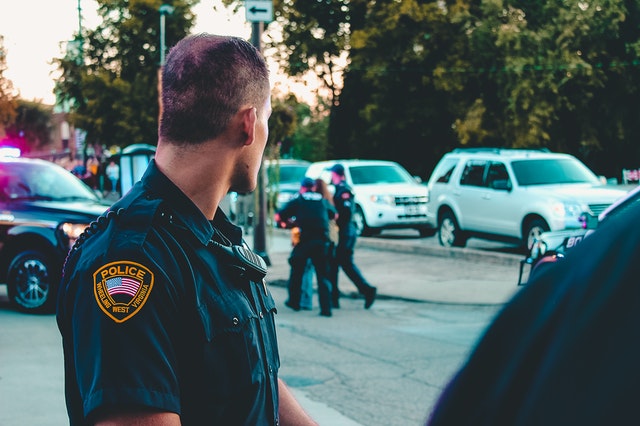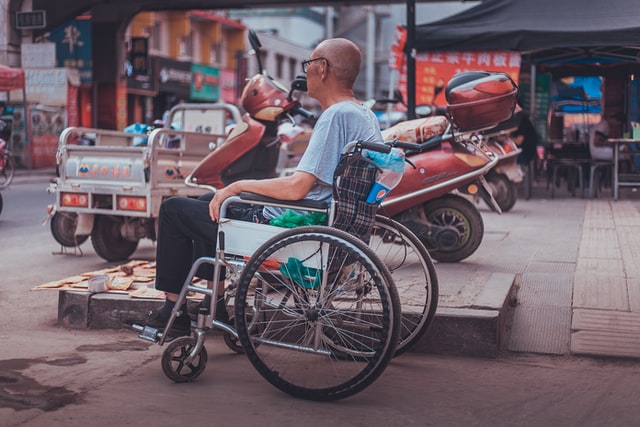Crimes perpetrated against disabled persons are on the increase every day.
Societal decadence is becoming a norm, making disabled persons more vulnerable.
Although laws protect disabled persons and attach severe penalties for assaulting them, victims of hate crimes are often scared of speaking out for themselves.
Sometimes, these victims go as far as enduring the brutalization and suffering in silence. But there’s something you can do. You can report someone taking advantage of a disabled person to the proper authorities without endangering your life or that of the victim.
This article aims to address this issue, including the context of what is considered a crime against disabled persons. So, make sure to read it to the end.
Table of Contents
- What is Considered a Hate Crime Against Disabled Persons?
- 1. Activities that significantly impact disabled persons
- 2. Activities that target friends or family of a disabled person
- 3. Activities that deliberately provoke disabled persons into reacting and then arresting them as the offenders
- 4. Activities that take advantage of the trust and relationship of a disabled person
- 5. Activities that subject disabled persons to exploitation
- How to Report Someone Taking Advantage of a Disabled Person
- What Happens After Reporting an Incident of Abusing a Disabled Person?
- Signs of Abuse in Disabled Persons
- Top Tips on How to Help a Disabled Person under Abuse
What is Considered a Hate Crime Against Disabled Persons?
To avoid misunderstanding and to report a non-criminal activity, check out the list below for the crimes against disabled persons punishable under law.
1. Activities that significantly impact disabled persons
These include offenses that, although not targeted to a disabled person, had a significant impact on the disabled person because of their disability.
For instance, the tires of random tricycles were slashed, with one of them having a specific adaption for the benefit of a disabled person. This act is an offense and punishable under the law because it left the disabled person with no transport. Sounds familiar?
Recommended: Penalties for Assaulting a Disabled Person
2. Activities that target friends or family of a disabled person
Any decision or attack targeted against the friends and family of a disabled person is punishable under law and can be reported to the authorities.
3. Activities that deliberately provoke disabled persons into reacting and then arresting them as the offenders
This includes attacks or decisions targeted to deliberately provoke a disabled person into reacting so they are grounded and look like the offender.
4. Activities that take advantage of the trust and relationship of a disabled person
If a caregiver, volunteer, family member, or friend takes advantage of their relationship with a disabled person to attack the victim, it is an offense and punishable under law.
5. Activities that subject disabled persons to exploitation
This includes but is not limited to selling a disabled person medication, making a disabled person accomplice to a crime, sexually abusing a disabled person, etc.
Now, let’s jump right in on how to report someone taking advantage of a disabled person to the appropriate quarters.
Recommended: Homes for People with Disabilities: Everything You Should Know
How to Report Someone Taking Advantage of a Disabled Person

Start by getting the details of the victim and the abuser. These details should include their names, residential address, workplace, and, if possible, their telephone numbers. Once you’ve confirmed the details, proceed to get concrete evidence proving they committed a hate crime.
It could be a video or voice record of the person abusing the disabled person or pictures of the attack. Be careful when getting your evidence to avoid being seen by the perpetrator.
Next is to report and forward the evidence to the Disabled Persons Protection Commission (DPPC). You can decide to remain anonymous or not, depending on your preference. Avoid making your report through email because it could be delayed or left unattended. The best way to communicate with the DPPC is by calling their toll-free hotline.
What Happens After Reporting an Incident of Abusing a Disabled Person?
Immediately you report someone taking advantage of a disabled person, staff of the Disabled Persons Protection Commission will swing into action to protect the victim and bring the perpetrator to book.
They will conduct observations and record interviews professionally with the complainants, victims, and eyewitnesses until the abuser is apprehended.
You should know that selective persons are legalized to report suspected cases of abuse targeted to disabled persons. These persons have the legislative requirement to carry out these tasks, referred to as mandatory reporting.
Also, they are professionals in delivering health care, education, welfare, law enforcement, and residential services to disabled persons. And another thing, they can request protection for disabled persons in court.
Recommended: Top 4 Services Available to Handicapped Persons
Signs of Abuse in Disabled Persons
A recent survey shows that 7 out of 10 disabled persons have been abused and victimized because of their disability. Unfortunately, the victims tend to hide the incidents and shy away from reporting their abusers.

So, we have put together the signs of abuse in disabled persons. These signs range from physical signs like bruises, fractures, sprains, cuts, and abrasions to non-physical signs like restlessness and anxiety.
Loss of appetite
This is one of the signs to watch out for when you suspect that someone is taking advantage of a disabled person. People tend to lose their appetite when subjected to fear and anxiety. In some cases, it could be persistent hunger instead of loss of appetite.
The desire for isolation
Disabled Persons under abuse tend to isolate themselves from people. There’s a strong desire not to socialize because of anxiety attacks and fear of the unknown. When a disabled person draws into their shell, it often indicates abuse and victimization.
Mood swings and sleep disturbance
Another sign of abuse in disabled persons is unusual mood swings and sleep disturbance. You should immediately report to the appropriate quarters if you notice these signs.
Other signs of abuse in disabled persons are fear, avoidance of a particular person or place, sickly appearance, and extreme passivity.
Top Tips on How to Help a Disabled Person under Abuse
First, help the victim report the abuser to the proper authorities as the victim may be facing several barriers and unwilling to report their abusers. While you are at it, you should let the victim feel safe and protected.
Gently speak with the victim, assure the victim that you are helping them, and let them know they can trust you. When they tell you their story, listen to every detail, and sympathize with them. Then, reassure them that help is on the way.
You can also give them a few tips on protecting themselves from their abusers, pending the issue resolution. Sounds easy enough, but you need to be sure that every tip you give out to the victim is doable.




